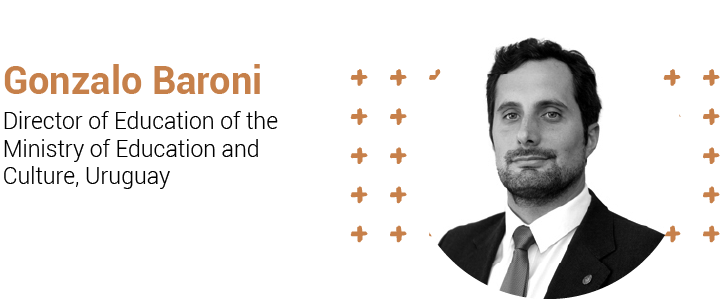
Member of the Board of Directors of the Fundación Ceibal.
After over seven months of the pandemic, in which Uruguay shifted abruptly from in-person to online classes, the country has progressively returned to the classrooms, and at this moment is evaluating the many consequences of this situation.
Our country was the first country in the region to return to in-person classes, beginning on 22 April at rural schools and gradually over the following months throughout the education system. At the same time, Uruguay was able to continue education online, as it had accumulated investment in the education innovation agency, Plan Ceibal, and broadened its scope during the pandemic, increasing connectivity.
There are many reflections we can make. Firstly, access to technology is no guarantee of access to educational quality as it was not necessarily accompanied by the acquisition of technological skills. We are prepared to transit through digital educational environments. The development of digital abilities and skills was not at the centre of the teaching model in our country.
Uruguay has been able to respond to an atypical situation such as this health emergency, but nonetheless with an education system that does not allow the incorporation of digital skills into the curriculum. At the same time, the pandemic made it possible to see more clearly the pre-existing gaps, and that if these are not evaluated and attended to they will increase when this situation is over.
As for digital skills in teacher training, this dimension was not incorporated in the original curriculum and many teachers had to learn on the job.
Secondly, we imagine post-pandemic education as a balance between technology and in-person learning. The school must be conceived as a new scenario, where day by day we must explore where we will find the frontier with the environments for technology. This context has shown us that the binding aspect of the school is relevant, but also taking into account various aspects that were not addressed previously in the school environment: soft skills such as the development of creative thinking, ethics, production skills, recreation, socialization, among others. These aspects should be developed in school spaces that must be reinvented.
In short, Uruguay has configured itself as a country that has been quick to invest in innovation and technology, and that thanks to its handling of the pandemic schools were able to reopen, giving priority to social and educational vulnerabilities. It has done so gradually in its levels, segmented in its territory and with voluntary attendance. In turn, we must stress that we have had a great commitment from most of the educational community, and the role of the teacher continues to be irreplaceable.
We still face many challenges in a sea of global uncertainties. The regional spaces such as those we are developing encourage us to continue advancing.
